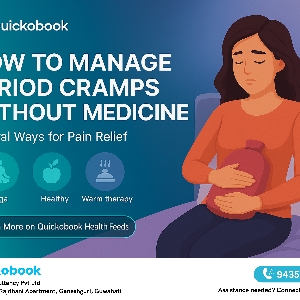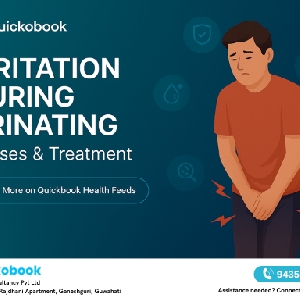Everything you need to know about Heart Disease:
Heart disease means any condition affecting the heart. There are many types in which some are preventable.
Unlike cardiovascular disease, which includes problems with the entire circulatory system, heart disease affects only the heart.
According to the Centres for Disease Control and Prevention (CDC), in the United States, heart disease is the leading cause of death. Around 4 deaths in the U.S. occur due to heart disease, and it affects all genders as well as all ethnic and racial groups.
The symptoms of heart disease depend on the specific type a person has. Also, some heart conditions cause no symptoms at all.
The following symptoms may indicate a heart problem:
- angina, or chest pain
- difficulty breathing
- fatigue and lightheadedness
- swelling due to fluid retention, or edema
In children, the symptoms of a congenital heart defect may include cyanosis, or a blue tinge to the skin, and an inability to exercise.
Some signs and symptoms that could indicate heart attack include:
- chest pain
- breathlessness
- heart palpitations
- nausea
- stomach pain
- sweating
- arm, jaw, back, or leg pain
- a choking sensation
- swollen ankles
- fatigue
- an irregular heartbeat
Heart attack can lead to cardiac arrest, which is when the heart stops and the body can no longer function. A person needs immediate medical attention if they have any symptoms of heart attack.
If cardiac arrest occurs, the person will need:
- immediate medical help (call 911)
- immediate cardiopulmonary resuscitation
- a shock from an automated external defibrillator, if available
Heart disease develops when there is:
- damage to all or part of the heart
- a problem with the blood vessels leading to or from the heart
- a low supply of oxygen and nutrients to the heart
In some cases, there is a genetic cause. However, some lifestyle factors and medical conditions can also increase the risk. These include:
- high blood pressure
- high cholesterol
- smoking
- a high intake of alcohol
- overweight and obesity
- diabetes
- a family history of heart disease
- dietary choices
- age
- a history of preeclampsia during pregnancy
- low activity levels
- high stress and anxiety levels
The World Health Organization (WHO) mention poverty and stress as two key factors contributing to a global increase in heart and cardiovascular disease.
The treatment options will vary depending on the type of heart disease a person has, but some common strategies include making lifestyle changes, taking medications, and undergoing surgery.
The following sections will look at some of these options in more detail.
Medications
Various medications can help treat heart conditions. The main options include:
- Anticoagulants: Also known as blood thinners, these medications can prevent clots. They include warfarin (Coumadin).
- Antiplatelet therapies: These include aspirin, and they can also prevent clots.
- Angiotensin-converting enzyme inhibitors: These can help treat heart failure and high blood pressure by causing the blood vessels to expand. Benazepril (Lotensin) is one example.
- Angiotensin II receptor blockers: These can also control blood pressure. Valsartan (Diovan) is one example.
- Angiotensin receptor neprilysin inhibitors: These can help open up narrowed arteries to treat heart failure.
- Cholesterol-lowering medications: Statins, such as atorvastatin (Lipitor), and other types of drug can help reduce levels of low-density lipoprotein cholesterol in the body.
- Digitalis: Preparations such as digoxin (Lanoxin) can increase the strength of the heart’s pumping action. They can also help treat heart failure and arrhythmias.
- Beta-blockers: Atenolol (Tenormin) and other medications in this class can reduce the heart rate and lower blood pressure. They can also treat arrhythmias and angina.
- Calcium channel blockers: These can lower blood pressure and prevent arrhythmias by reducing the pumping strength of the heart and relaxing the blood vessels. One example is diltiazem (Cardizem).
- Diuretics: These medications can reduce the heart’s workload, lower blood pressure, and remove excess water from the body. Furosemide (Lasix) is one example.
- Vasodilators: These are medications to lower blood pressure. They do this by relaxing the blood vessels. Nitroglycerin (Nitro Stat) is one example. They can also help ease chest pain. A doctor will work with the individual to find a suitable option.
Surgery
Undergoing heart surgery can treat blockages and heart related issues when medications are not effective.
Some common types of surgery are:
- Coronary artery bypass surgery: This allows blood flow to reach a part of the heart when an artery is blocked. Coronary artery bypass grafting is the most common surgery. A surgeon can use a healthy blood vessel from another part of the body to repair a blocked one.
- Valve replacement or repair: A surgeon can replace or repair a valve that is not functioning properly.
- Device implantation: pacemaker, balloon catheters, and other devices can help regulate the heartbeat and support blood flow.
- Laser treatment: Transmyocardial laser revascularization can help treat angina.
- Repair surgery: A surgeon can repair congenital heart defects, aneurysms, and other problems.
- Maze surgery: A surgeon can create new paths for electrical signals to pass through. This can help treat atrial fibrillation.
Heart transplant is another option. However, it can be tough to find a suitable donor at the right time.
Some lifestyle measures can help reduce the risk of heart disease. These include:
- Eating a balanced diet: Opt for a heart-healthy diet that is rich in fiber and favors whole grains and fresh fruits and vegetables. Also, it may help to limit the intake of processed foods and added fat, salt, and sugar.
- Exercising regularly: This can help strengthen the heart and circulatory system, reduce cholesterol, and maintain blood pressure.
- Quitting or avoiding smoking: Smoking is a major risk factor for heart and cardiovascular conditions.
- Maintaining a moderate body weight: A person can check their body mass index (BMI) here..
- Limiting alcohol intake: Females should consume no more than one standard drink per day, and males should consume no more than two standard drinks per day.
- Managing underlying conditions: Seek treatment for conditions that affect heart health, such as high blood pressure, obesity, and diabetes.
These steps can help boost overall health and reduce the risk of heart disease and its complications.









Comments (0)
No comments yet. Be the first to share your thoughts!
Leave a Comment